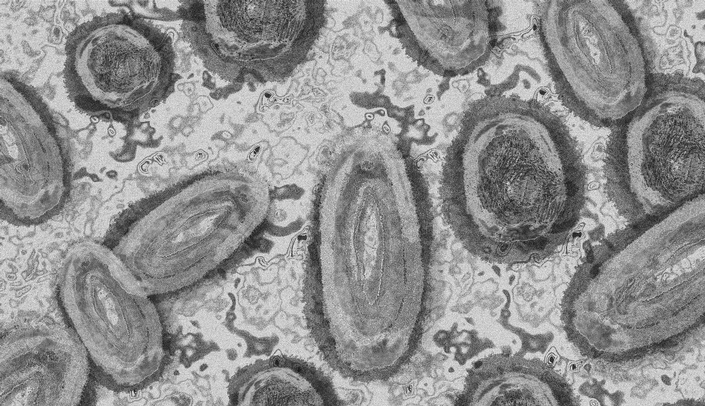Lab tests confirmed Monday that a patient who was seen at a Nebraska Medicine ambulatory location has Nebraska's first case of monkeypox.
According to the Douglas County Health Department, the patient is a man in his 30s. He is isolating at home and is not severely ill. The health department is performing contact tracing to determine who else may have been in contact with this individual. Clinic staff followed infection control procedures and immediately contacted public health officials and the Nebraska Biocontainment Team.
Angela Hewlett, MD, medical director of the Nebraska Biocontainment Unit and the George W. Orr MD and Linda Orr Chair in Health Security at UNMC, and Kelly Cawcutt, MD, associate professor in the UNMC Division of Infectious Diseases and associate medical director, Infection Control & Epidemiology at Nebraska Medicine, joined county health officials at a press conference Monday.
Med center infectious diseases say proper personal protective equipment use in clinical settings will protect health care workers and other patients. Monkeypox is spread by close contact with infected people through open skin, eyes, nose and mouth. Symptoms begin with fever, aches, swollen lymph nodes, rash/lesions and exhaustion.
Monkeypox is thought to originate in animals, which can pass the disease on to people. Person-to-person transmission also can occur. In humans, the symptoms of monkeypox are similar to but milder than the symptoms of smallpox.
Since May 2022, monkeypox cases have been identified in 21 states and territories. Hundreds of cases have been identified in the United States and its territories; thousands have been identified in many other countries that do not have endemic disease.
Close contact is the most significant risk factor associated with human-to-human transmission of monkeypox, including sustained skin-to-skin contact or sexual contact with a person with monkeypox, prolonged contact with respiratory secretions or contact with contaminated objects, such as shared linens. Cases have been confirmed in individuals with and without a history of international travel.
The incubation period is typically seven to 14 days but can range from five days to three weeks. There is no specific treatment for monkeypox, but some antiviral agents for smallpox have been used effectively to treat patients with monkeypox. Some people who have had close personal contact with an infected individual may be a candidate for prophylaxis with a vaccine.
More information on monkeypox is available on the CDC website.
Med center colleagues with specific questions about monkeypox should discuss with their manager or contact employee health at 402-552-3563. The health department information line at 402-444-3400 also can help with questions from the public.
